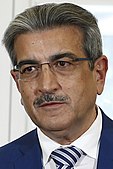Next Canarian regional election
| |||||||||||||||||||||||||||||||||||||||||||||||||||||||||||||||||||||||||||||||||||||||||||||||||
All 70 seats in the Parliament of the Canary Islands 36 seats needed for a majority | |||||||||||||||||||||||||||||||||||||||||||||||||||||||||||||||||||||||||||||||||||||||||||||||||
|---|---|---|---|---|---|---|---|---|---|---|---|---|---|---|---|---|---|---|---|---|---|---|---|---|---|---|---|---|---|---|---|---|---|---|---|---|---|---|---|---|---|---|---|---|---|---|---|---|---|---|---|---|---|---|---|---|---|---|---|---|---|---|---|---|---|---|---|---|---|---|---|---|---|---|---|---|---|---|---|---|---|---|---|---|---|---|---|---|---|---|---|---|---|---|---|---|---|
| Opinion polls | |||||||||||||||||||||||||||||||||||||||||||||||||||||||||||||||||||||||||||||||||||||||||||||||||
| |||||||||||||||||||||||||||||||||||||||||||||||||||||||||||||||||||||||||||||||||||||||||||||||||
| |||||||||||||||||||||||||||||||||||||||||||||||||||||||||||||||||||||||||||||||||||||||||||||||||
The next Canarian regional election will be held no later than Sunday, 28 May 2023, to elect the 11th Parliament of the Autonomous Community of the Canary Islands. All 70 seats in the Parliament will be up for election.
Overview[]
Electoral system[]
The Parliament of the Canary Islands is the devolved, unicameral legislature of the autonomous community of the Canary Islands, having legislative power in regional matters as defined by the Spanish Constitution and the Canarian Statute of Autonomy, as well as the ability to vote confidence in or withdraw it from a regional president.[1]
Voting for the Parliament is on the basis of universal suffrage, which comprises all nationals over eighteen, registered in the Canary Islands and in full enjoyment of their political rights. Additionally, Canarians abroad are required to apply for voting before being permitted to vote, a system known as "begged" or expat vote (Spanish: Voto rogado).[2] The 70 members of the Parliament of the Canary Islands are elected using the D'Hondt method and a closed list proportional representation, with an electoral threshold of 15 percent of valid votes—which includes blank ballots—being applied in each constituency. Alternatively, parties can also enter the seat distribution as long as they reach four percent regionally. Seats are allocated to constituencies, corresponding to the islands of El Hierro, Fuerteventura, Gran Canaria, La Gomera, La Palma, Lanzarote and Tenerife, as well as an additional constituency comprising the whole archipelago, with each being allocated a fixed number of seats: 3 for El Hierro, 8 for Fuerteventura, 15 for Gran Canaria, 4 for La Gomera, 8 for La Palma, 8 for Lanzarote, 15 for Tenerife and 9 for the regional constituency.[1]
Election date[]
The term of the Parliament of the Canary Islands expires four years after the date of its previous election. Elections to the Parliament are fixed for the fourth Sunday of May every four years. The previous election was held on 26 May 2019, setting the election date for the Parliament on Sunday, 28 May 2023.[1][3][4]
The president has the prerogative to dissolve the Parliament of the Canary Islands and call a snap election, provided that no motion of no confidence is in process and that dissolution does not occur before one year has elapsed since the previous one. In the event of an investiture process failing to elect a regional president within a two-month period from the first ballot, the Parliament shall be automatically dissolved and a fresh election called. Any snap election held as a result of these circumstances will not alter the period to the next ordinary election, with elected deputies merely serving out what remains of their four-year terms.[1]
Parties and candidates[]
The electoral law allows for parties and federations registered in the interior ministry, coalitions and groupings of electors to present lists of candidates. Parties and federations intending to form a coalition ahead of an election are required to inform the relevant Electoral Commission within ten days of the election call, whereas groupings of electors need to secure the signature of at least one percent of the electorate in the constituencies for which they seek election, disallowing electors from signing for more than one list of candidates.[4]
Below is a list of the main parties and electoral alliances which will likely contest the election:
| Candidacy | Parties and alliances |
Candidate | Ideology | Previous result | Gov. | Ref. | |||
|---|---|---|---|---|---|---|---|---|---|
| Votes (%) | Seats | ||||||||
| PSOE | List |

|
Ángel Víctor Torres | Social democracy | 28.88% | 25 | [5] | ||
| CCa–PNC | List
|

|
Fernando Clavijo | Regionalism Canarian nationalism Centrism |
21.93% | 20 | |||
| PP | List
|

|
Manuel Domínguez | Conservatism Christian democracy |
15.18% | 11 | [6] [7] | ||
| NCa | List
|

|
Román Rodríguez | Canarian nationalism Social democracy |
9.05% | 5 | |||
| Podemos | List
|

|
Noemí Santana | Left-wing populism Direct democracy Democratic socialism |
8.78% | 4 | |||
| Cs | List |

|
Vidina Espino | Liberalism | 7.36% | 2 | |||
| Vox | List
|

|
TBD | Right-wing populism Ultranationalism National conservatism |
2.47% | 0 | |||
| ASG | List
|

|
Casimiro Curbelo | Insularism Social democracy |
0.70% | 3 | |||
| UxGC | List
|

|
Lucas Bravo de Laguna | Regionalism Liberalism Centrism |
New party[a] | [8] [9] | |||
Opinion polls[]
The table below lists voting intention estimates in reverse chronological order, showing the most recent first and using the dates when the survey fieldwork was done, as opposed to the date of publication. Where the fieldwork dates are unknown, the date of publication is given instead. The highest percentage figure in each polling survey is displayed with its background shaded in the leading party's colour. If a tie ensues, this is applied to the figures with the highest percentages. The "Lead" column on the right shows the percentage-point difference between the parties with the highest percentages in a poll. When available, seat projections determined by the polling organisations are displayed below (or in place of) the percentages in a smaller font; 36 seats are required for an absolute majority in the Parliament of the Canary Islands.
| Polling firm/Commissioner | Fieldwork date | Sample size | Turnout | Lead | ||||||||||
|---|---|---|---|---|---|---|---|---|---|---|---|---|---|---|
| Hamalgama Métrica/UNED[p 1] | 1–26 Nov 2021 | 3,170 | ? | 34.5 28/33 |
18.3 13/16 |
17.8 13/16 |
9.7 4/6 |
[b] | 2.6 0 |
5.4 1/2 |
[b] | 0.8 3 |
6.6 3 |
16.2 |
| ElectoPanel/Electomanía[p 2] | 16 Jun–23 Jul 2021 | ? | ? | 33.1 28 |
18.8 15 |
19.0 15 |
9.7 5 |
[b] | 2.2 0 |
5.3 2 |
[b] | 0.7 3 |
6.1 2 |
14.1 |
| Hamalgama Métrica/UNED[p 3][p 4] | 1–19 Feb 2021 | 1,500 | ? | 34.4 | 17.4 | 16.1 | 9.2 | 9.6 | 4.5 | 5.0 | – | 0.7 | – | 17.0 |
| Ágora Integral[p 5] | 7 Feb 2021 | 5,850 | ? | ? 25/26 |
? 18/19 |
? 10/12 |
? 5 |
? 4 |
? 0/2 |
? 2 |
– | ? 3 |
– | ? |
| SyM Consulting[p 6] | 13–17 Jan 2021 | 3,851 | 55.2 | 26.9 22 |
21.5 19/24 |
15.7 9/14 |
8.3 5/6 |
8.1 2/3 |
4.9 0/3 |
7.9 3 |
– | 0.7 2/3 |
– | 5.4 |
| ElectoPanel/Electomanía[p 7] | 15 Dec 2020 | 850 | ? | 32.0 27 |
19.8 18 |
16.4 12 |
9.6 5 |
[b] | 4.9 1 |
5.2 2 |
[b] | 0.7 3 |
6.7 2 |
12.2 |
| ElectoPanel/Electomanía[p 8] | 31 Oct 2020 | 850 | ? | 32.4 28 |
19.9 19 |
16.2 12 |
9.6 5 |
[b] | 4.6 1 |
4.4 0 |
[b] | 0.7 3 |
6.9 2 |
12.5 |
| ElectoPanel/Electomanía[p 9][p 10] | 1 Apr–15 May 2020 | ? | ? | 31.8 27 |
19.7 18 |
16.7 14 |
9.1 5 |
[b] | 4.6 1 |
3.5 0 |
[b] | 0.7 3 |
7.5 2 |
12.1 |
| November 2019 general election | 10 Nov 2019 | N/A | 55.4 | 28.9 | 13.1 | 20.8 | [c] | [b] | 5.4 | 12.5 | [b] | – | 14.7 | 8.1 |
| 2019 regional election | 26 May 2019 | N/A | 52.6 | 28.9 25 |
21.9 20 |
15.2 11 |
9.0 5 |
8.8 4 |
7.4 2 |
2.5 0 |
1.0 0 |
0.7 3 |
– | 7.0 |
Notes[]
References[]
- Opinion poll sources
- ^ "Sociobarómetro de Canarias. Estudio SBC-1. Marzo 2021" (PDF). UNED (in Spanish). 27 March 2021.
- ^ "EP Canarias (01AG): El PP superaría a Coalición Canaria en votos". Electomanía (in Spanish). 1 August 2021.
- ^ "Sociobarómetro de Canarias. Estudio SBC-1. Marzo 2021" (PDF). UNED (in Spanish). 27 March 2021.
- ^ "CANARIAS. Encuesta Hamalgama Métrica 27/03/2021 (Sociobarómetro Canarias): SÍ PODEMOS CANARIAS 9,6%, NC 9,2%, ASG 0,7%, PSOE 34,4%, CCa-PNC 17,4%, Cs 4,5%, PP 16,1%, VOX 5,0%". Electograph (in Spanish). 7 February 2021.
- ^ "CANARIAS. Encuesta Ágora Integral 07/02/2021: SÍ PODEMOS CANARIAS 4, NC 5, ASG 3, PSOE 25/26, CCa-PNC 18/19, Cs 0/2, PP 10/12, VOX 2". Electograph (in Spanish). 7 February 2021.
- ^ "Estimación Enero 2021. Canarias. Autonómicas 2023". SyM Consulting (in Spanish). 3 February 2021.
- ^ "ElectoPanel Autonómico (15D): Vox irrumpe en el Parlamento canario". Electomanía (in Spanish). 15 December 2020.
- ^ "EP Autonómico (31oct): subida del PSOE en Canarias, Vox sigue 'sin comerse ni el gofio' en el Parlamento de las Islas". Electomanía (in Spanish). 31 October 2020.
- ^ "EP (17My): Canarias – Torres se afianza". Electomanía (in Spanish). 17 May 2020.
- ^ "MacroPanel Autonómico (17My): 8 gobiernos para PSOE+, 8 para PP+ y 3 para otros+". Electomanía (in Spanish). 17 May 2020.
- Other
- ^ a b c d "Ley Orgánica 1/2018, de 5 de noviembre, de reforma del Estatuto de Autonomía de Canarias". Organic Law No. 1 of 5 November 2018. Boletín Oficial del Estado (in Spanish). Retrieved 6 November 2018.
- ^ Reig Pellicer, Naiara (16 December 2015). "Spanish elections: Begging for the right to vote". cafebabel.co.uk. Retrieved 17 July 2017.
- ^ "Ley 7/2003, de 20 de marzo, de Elecciones al Parlamento de Canarias". Law No. 7 of 20 March 2003. Boletín Oficial del Estado (in Spanish). Retrieved 12 September 2017.
- ^ a b "Ley Orgánica 5/1985, de 19 de junio, del Régimen Electoral General". Organic Law No. 5 of 19 June 1985. Boletín Oficial del Estado (in Spanish). Retrieved 30 January 2020.
- ^ "Ángel Víctor Torres, reelegido como secretario general del PSOE de Canarias". Canarias Ahora (in Spanish). Europa Press. 10 October 2021. Retrieved 9 November 2021.
- ^ "Paso atrás de Australia Navarro en la lucha por la presidencia del PP canario". La Provincia (in Spanish). 29 November 2021. Retrieved 29 November 2021.
- ^ "Manuel Domínguez, nuevo presidente del PP de Canarias" (in Spanish). Santa Cruz de Tenerife: Europa Press. 23 January 2022. Retrieved 23 January 2022.
- ^ "Unidos por Gran Canaria elige como presidente a Lucas Bravo de Laguna y vicepresidente al ex alto cargo del PP Enrique Hernández Bento". Canarias Ahora (in Spanish). 26 June 2021. Retrieved 25 September 2021.
- ^ "CC pierde a su principal aliado en la isla de Gran Canaria". Diario de Avisos (in Spanish). 24 September 2021. Retrieved 25 September 2021.
- Future elections in Spain
- 2023 regional elections in Spain
- Regional elections in the Canary Islands




